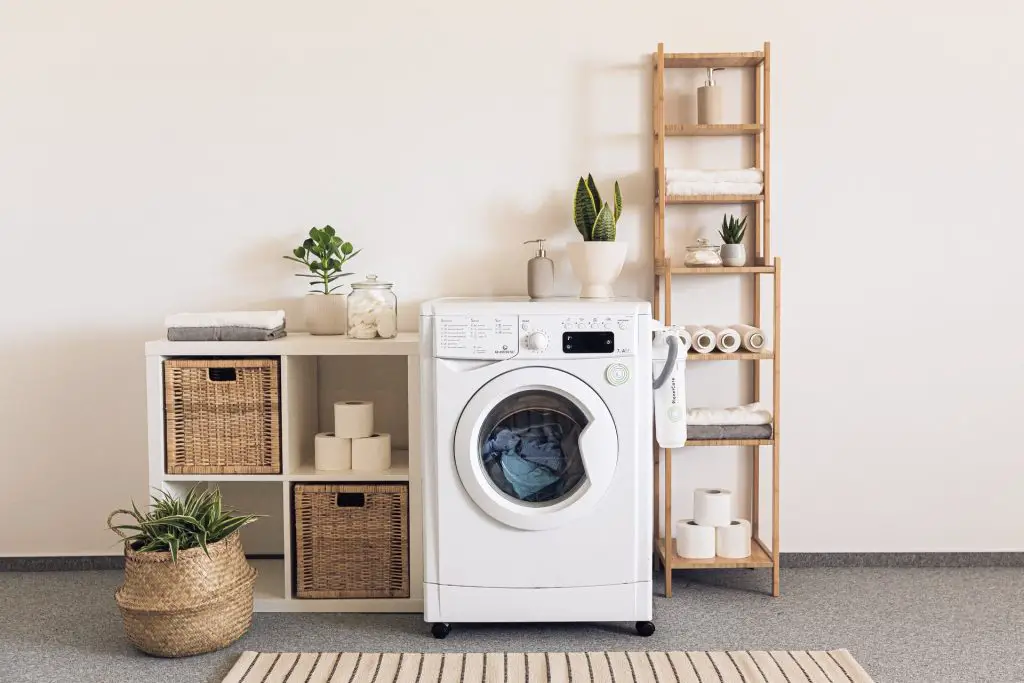Energy-efficient home appliances are gaining popularity due to their ability to reduce utility costs and contribute to a more sustainable lifestyle. This guide will explore the benefits of these appliances and provide some top picks to help you make informed decisions when purchasing them for your home.
The Benefits of Energy-Efficient Appliances

Energy-efficient appliances offer numerous benefits, from saving money to reducing environmental impacts. These benefits include:
- Lower utility bills: Energy-efficient appliances use less energy, which can result in lower utility costs, meaning more money in your pocket.
- Reduced greenhouse gas emissions: Using appliances that consume less energy translates to fewer greenhouse gas emissions, leading to a smaller carbon footprint.
- Longer lifespan: Energy-efficient appliances are often built with high-quality materials and parts, which can lead to increased longevity and better performance.
Energy Star: The Industry Standard
The Energy Star label is the most recognized symbol for energy-efficient products in the United States. Created by the Environmental Protection Agency (EPA), it signifies that an appliance meets strict guidelines for energy efficiency. When comparing appliances, always look for the Energy Star logo to ensure you are purchasing an energy-efficient product.
Choosing the Right Energy Provider
Another important aspect of optimizing energy efficiency is selecting the right energy provider. Some providers offer green energy plans or incentives for using energy-efficient appliances. Research and compare options in your area to find the best Texas Light Company, which will offer useful information on energy-efficient options and savings tips.
The Value of Proper Maintenance

Proper maintenance and care are essential for ensuring that your appliances continue to operate effectively and efficiently over time. Regular cleaning, filter replacement, and scheduled servicing for larger appliances like air conditioners can help maintain optimal energy usage and prevent costly repairs or replacements due to neglect or wear and tear.
Energy-Efficient Lighting
When considering energy efficiency in your home, do not forget the impact of lighting. Traditional incandescent bulbs are far less energy-efficient than their modern alternatives, such as compact fluorescent lights (CFLs) or light-emitting diodes (LEDs). Switching to energy-efficient lighting can reduce your energy consumption and help you save on electricity bills while also being more environmentally friendly.
Government Incentives
In certain regions, financial incentives are available for homeowners who invest in energy-efficient appliances or make energy-saving improvements to their homes. These incentives can be in the form of tax credits, rebates, or low-interest financing options. It’s essential to research the specific programs available in your area to make full use of available resources, saving you both money and energy in the long run.
Refrigerators
Refrigerators are energy-intensive appliances. When selecting a refrigerator, consider the following features:
- Size: Choose a refrigerator that is the appropriate size for your household. Bigger models consume more energy.
- Configuration: Top-mount refrigerators (with the freezer on top) are typically more energy-efficient than side-by-side or bottom-mount models.
Washing Machines

Washing machines can also consume a significant amount of energy. Look for these features when comparing models:
- Front-loading: Front-loading machines are usually more energy-efficient than top-loading models, as they use less water and spin faster to remove excess moisture from laundry.
- Load sensing: Some washing machines come with load sensing technology, adjusting water levels and energy consumption according to the size of the laundry load.
Dishwashers
For an energy-efficient dishwasher, consider these features:
- Energy-saving cycles: Look for dishwashers that offer energy-saving cycle options, such as ‘eco’ or ‘light wash.’
- Soil sensors: Dishwashers with soil sensors can adjust the cleaning level and cycle length based on the amount of dirt on the dishes, conserving water and energy.
Ovens and Stove Tops

When evaluating ovens and stove tops for energy efficiency, consider these points:
- Electric vs. gas: Both electric and gas ovens can be energy-efficient, depending on the cooking method and proper use. Electric induction cooktops are generally more efficient than standard electric cooktops, and gas ovens can be efficient if they use a well-insulated oven and convection feature.
- Convection ovens: Convection ovens circulate hot air for even cooking, helping to cook food more efficiently and at lower temperatures.
Air Conditioners
When selecting an air conditioner, pay close attention to these energy-saving features:
- Energy Efficiency Ratio (EER) and Seasonal Energy Efficiency Ratio (SEER): These metrics indicate how efficiently an air conditioner will operate. The higher these values, the more energy-efficient the unit.
- Programmable thermostats: These thermostats allow you to set the ideal temperature and schedule, reducing energy waste when you’re not at home.
Conclusion
By investing in energy-efficient home appliances, you can save money on utility bills, reduce your environmental impact, and potentially extend the life of your appliances. Always look for the Energy Star logo when shopping for appliances and prioritize models with the efficiency features highlighted in this guide. With these considerations in mind, happy shopping!
Thanks to all the companies linked above.
























